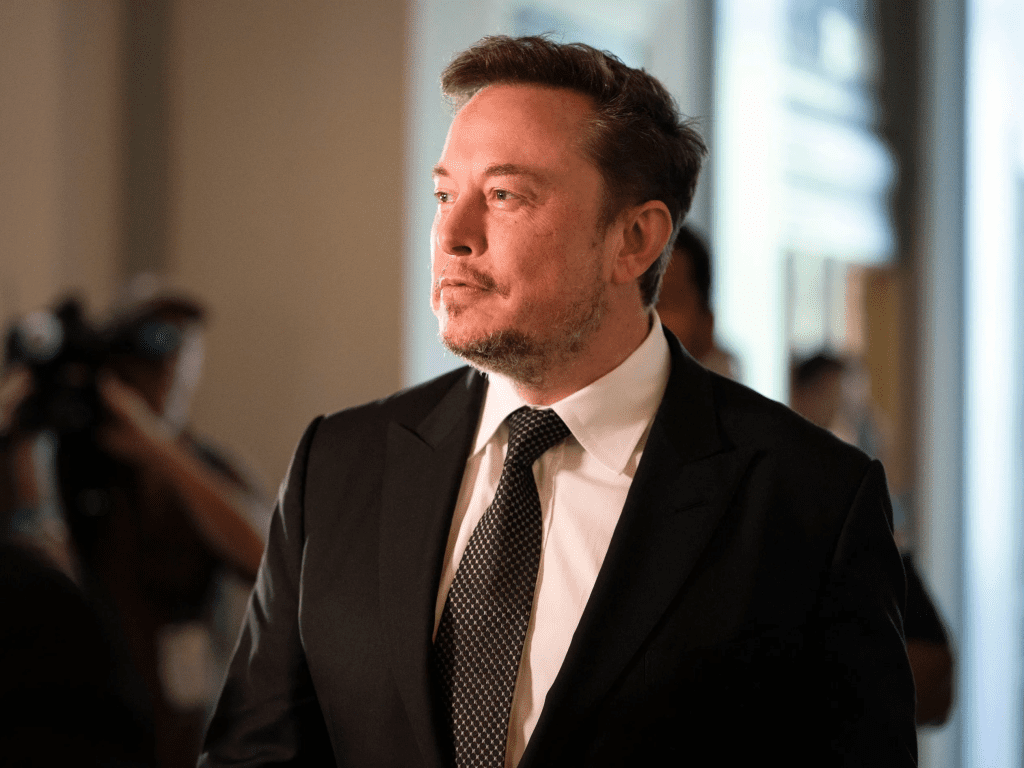
In an unexpected twist of technological progress, Elon Musk is developing a groundbreaking innovation that could fundamentally alter the concept of pregnancy and motherhood: robots designed to carry and nurture a baby throughout the nine months of pregnancy.
According to some sources, this project is still in its early stages of development, but it promises to revolutionize how couples experience parenthood.
A Future Without Human Pregnancy – Elon Musk Develops Pregnant Robots, Transforming the Journey of Motherhood!
The idea behind the pregnancy robot is to allow couples to contribute only eggs and sperm, while the robot takes care of carrying the baby.

The main goal of this technology is to free mothers from the physical and emotional challenges of pregnancy, offering a safer and less risky alternative.
This project was conceived as a response to concerns about the risks women face during pregnancy and childbirth, particularly in complicated or high-risk cases.
A Future Without Human Pregnancy – Elon Musk Develops Pregnant Robots!
The concept of using technology to manage pregnancy is not entirely new, but with Musk’s ability to turn visionary ideas into reality, this development could change the history of medicine and reproductive technology.
According to some experts, this innovation could significantly reduce the risks associated with pregnancy and childbirth, such as complications, preeclampsia, and other conditions that threaten the lives of mothers or babies.
A Future Without Human Pregnancy – Elon Musk Develops Pregnant Robots!
Potential benefits of this technology include better-controlled pregnancies, continuous monitoring of the health of both mother and baby, and reduced medical costs associated with traditional pregnancies.
Additionally, researchers believe that robots could eliminate uncertainty in high-risk pregnancies and provide a solution for couples struggling to conceive or those unable to have children.
However, this development is not without controversy. Critics have raised concerns about the ethical and societal implications of such a drastic shift, challenging traditional views of motherhood and fatherhood.
Moreover, the feasibility of a robotic system capable of replicating all the biological and emotional aspects of human pregnancy remains questionable, as this goes far beyond just the physical process of carrying a baby.
Despite these concerns, Musk’s vision continues to attract global attention.
With his track record of developing groundbreaking technologies, from electric cars at Tesla to advancements in space exploration with SpaceX, many believe his influence could take this project far beyond initial expectations.
The future of motherhood may lie in the hands of technology, but are we ready to embrace a new way of bringing life into the world?
The coming years will undoubtedly provide an answer as research and development into this technology continue to progress.
In a groundbreaking move that promises to reshape the future of reproduction, Elon Musk has announced the development of “pregnant robots,” a new technology that could eliminate the need for human pregnancies altogether.
The futuristic concept, revealed by Musk’s company Neuralink, envisions advanced robots capable of carrying and delivering babies, opening the door to a new era of artificial motherhood.
This announcement has sent shockwaves through both the tech and ethical communities. Musk, who is no stranger to disruptive innovation, believes that this technology could not only reduce the physical and emotional toll on human mothers but also address issues such as overpopulation and the challenges faced by individuals unable to bear children.

According to Musk, pregnant robots would be equipped with artificial wombs, allowing them to gestate and give birth to human offspring without any involvement from biological mothers.
However, critics have raised concerns about the societal and moral implications of such a drastic shift. Some argue that this could lead to the dehumanization of motherhood, removing the deeply personal and emotional connections that come with the birthing process.
Others worry that the technology could be exploited for purposes such as replacing human labor with artificial reproduction systems.
Despite the controversy, Musk’s vision for a world without human pregnancies has captivated imaginations, with supporters hailing it as a revolutionary step forward for technology, women’s rights, and human evolution.
As the concept gains traction, questions about the ethical boundaries of artificial reproduction and the future of humanity are sure to dominate discussions in the coming years.
Musk’s pregnant robots may just be the beginning of a bold, new world where technology and motherhood intersect in ways previously unimaginable.


